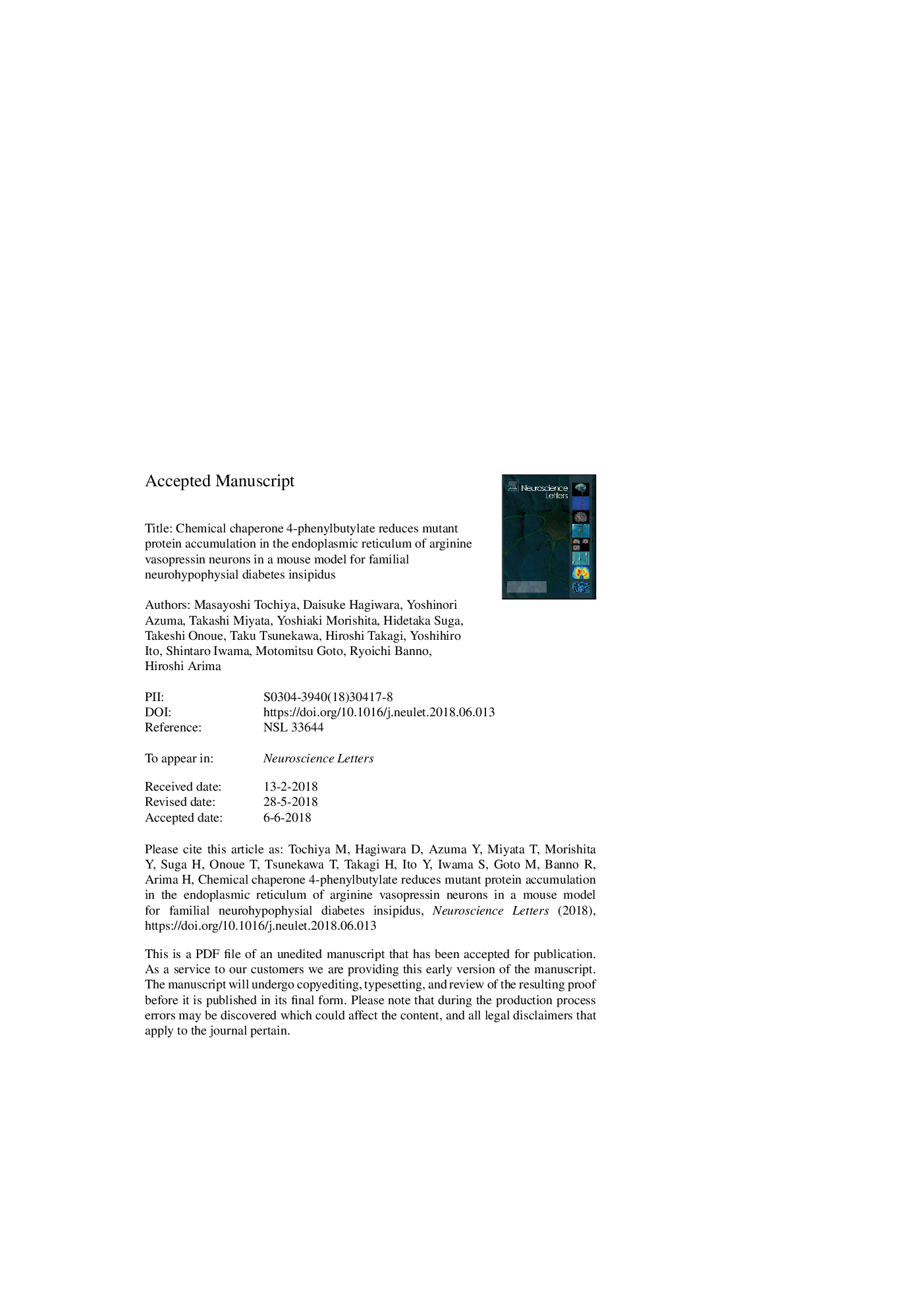| Article ID | Journal | Published Year | Pages | File Type |
|---|---|---|---|---|
| 8841401 | Neuroscience Letters | 2018 | 31 Pages |
Abstract
Familial neurohypophysial diabetes insipidus (FNDI), characterized by progressive polyuria and loss of arginine vasopressin (AVP) neurons, is an autosomal dominant disorder caused by AVP gene mutations. Our previous studies with FNDI model mice demonstrated that mutant proteins accumulated in the endoplasmic reticulum (ER) of AVP neurons. Here, we examined therapeutic effects of the chemical chaperone 4-phenylbutylate (4-PBA) in FNDI mice. Treatment with 4-PBA reduced mutant protein accumulation in the ER of FNDI mice and increased AVP release, leading to reduced urine volumes. Furthermore, AVP neuron loss under salt loading was attenuated by 4-PBA treatment. These data suggest that 4-PBA ameliorated mutant protein accumulation in the ER of AVP neurons and thereby prevented FNDI phenotype progression.
Keywords
Related Topics
Life Sciences
Neuroscience
Neuroscience (General)
Authors
Masayoshi Tochiya, Daisuke Hagiwara, Yoshinori Azuma, Takashi Miyata, Yoshiaki Morishita, Hidetaka Suga, Takeshi Onoue, Taku Tsunekawa, Hiroshi Takagi, Yoshihiro Ito, Shintaro Iwama, Motomitsu Goto, Ryoichi Banno, Hiroshi Arima,
